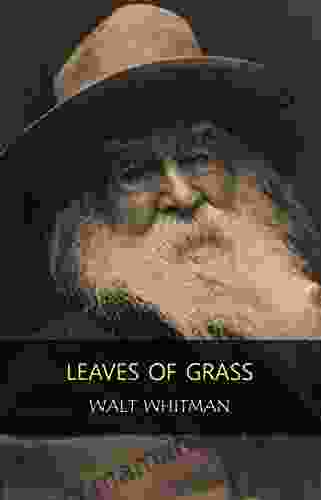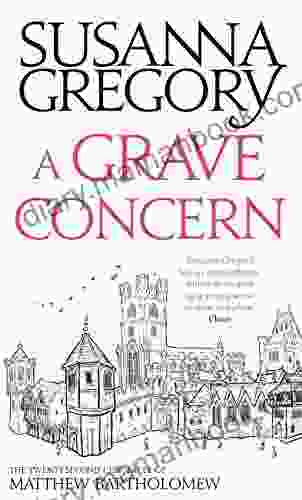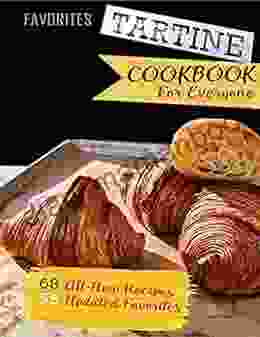Leaves of Grass: The Radical Vision and Enduring Legacy of the Original 1855 Edition

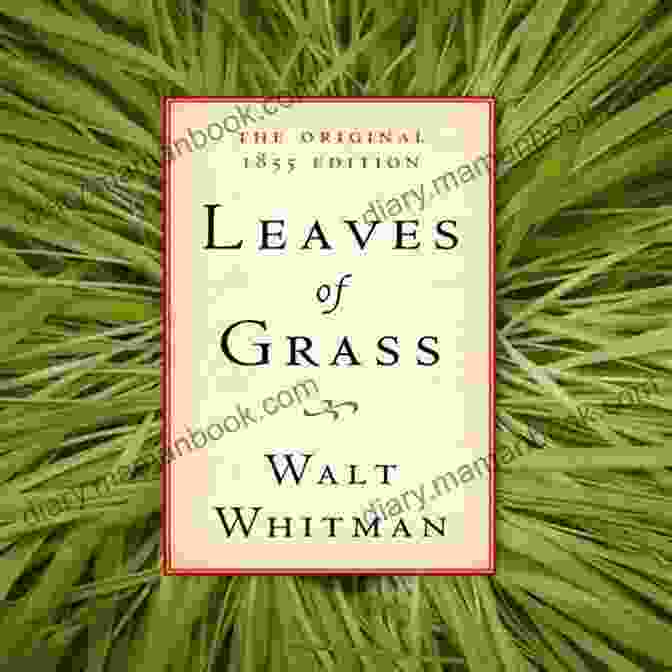
A Literary Revolution
In the annals of American literature, the publication of Walt Whitman's Leaves of Grass in 1855 stands as a pivotal moment that shattered literary conventions and redefined the very essence of poetry. This groundbreaking work, written with raw emotion and an audacious disregard for traditional form, burst onto the scene with the force of a revelation, challenging the sensibilities of a nation still grappling with the aftermath of the Civil War.
4.7 out of 5
| Language | : | English |
| File size | : | 725 KB |
| Text-to-Speech | : | Enabled |
| Screen Reader | : | Supported |
| Enhanced typesetting | : | Enabled |
| Print length | : | 160 pages |
The original edition of Leaves of Grass, consisting of twelve untitled poems, was a brazen departure from the established norms of the time. Whitman abandoned the rhyming schemes, metrical patterns, and polished language that had characterized American poetry up to that point. Instead, he employed a free-flowing, organic style that mirrored the rhythms of everyday speech, capturing the vibrant pulse of the American landscape and its people.
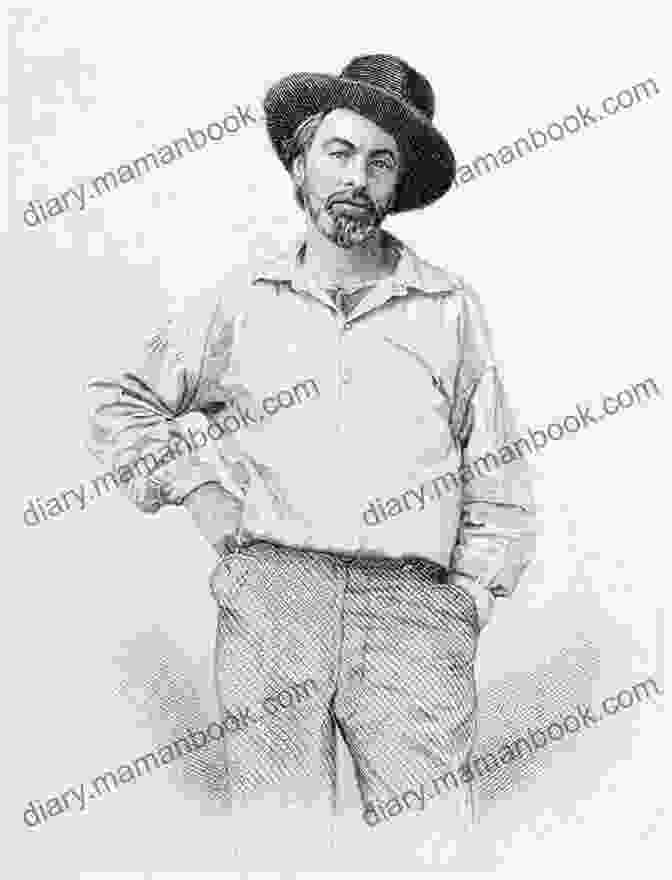
Whitman's poetry was a bold celebration of the ordinary, the overlooked, and the marginalized. He reveled in the beauty of the human body, the vastness of the American land, and the interconnectedness of all living things. His language was earthy, sensual, and unflinchingly honest, reflecting his belief in the essential goodness of humanity.
Themes of Nature, Democracy, and the American Spirit
Throughout Leaves of Grass, Whitman weaves together themes of nature, democracy, and the American spirit. He paints vivid portraits of the natural world, capturing the grandeur of the mountains, the stillness of the forests, and the untamed power of the ocean. These descriptions serve as a metaphor for the boundless potential and untamed spirit of America itself.
Whitman was a fervent believer in the democratic ideals of equality, freedom, and the inherent dignity of all individuals. His poetry celebrates the diverse tapestry of American society, regardless of race, gender, or social status. He argued that true democracy required a radical reimagining of the relationship between the individual and the collective, a vision that resonated deeply with a nation still struggling to reconcile its ideals with the realities of slavery and inequality.
Controversial Reception and Enduring Influence
Upon its publication, Leaves of Grass was met with a mixture of outrage and acclaim. Some critics denounced it as vulgar, obscene, and unpatriotic, while others hailed it as a masterpiece that defied convention and celebrated the American spirit in a groundbreaking way. Despite the initial controversy, Leaves of Grass slowly gained recognition and influence, becoming one of the most influential works in American literature.
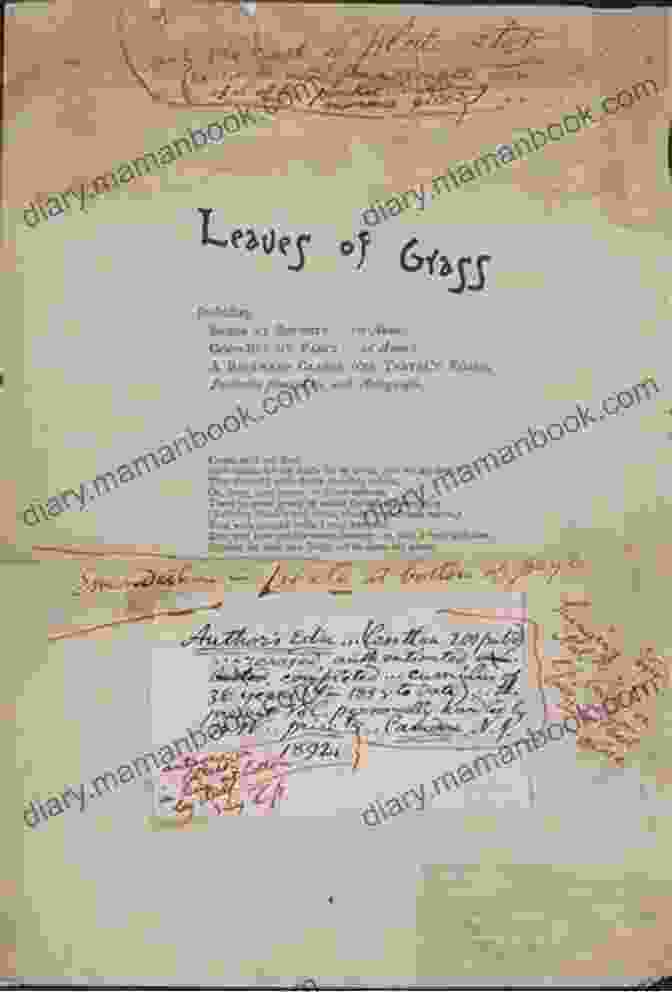
Over the years, Leaves of Grass has been interpreted and reinterpreted by countless scholars, poets, and artists. Its radical vision has inspired generations of writers, from Allen Ginsberg and Jack Kerouac to contemporary poets such as Joy Harjo and Jericho Brown. Its themes of nature, democracy, and the human experience continue to resonate with readers today, making it a timeless and enduring masterpiece.
The 1855 Edition: A Collector's Treasure
The original 1855 edition of Leaves of Grass is a sought-after collector's item, highly prized for its historical and literary significance. Only a small number of these first editions were printed, and they are now extremely rare and valuable. The book's distinctive green cover, designed by Whitman himself, has become an iconic symbol of American literature.
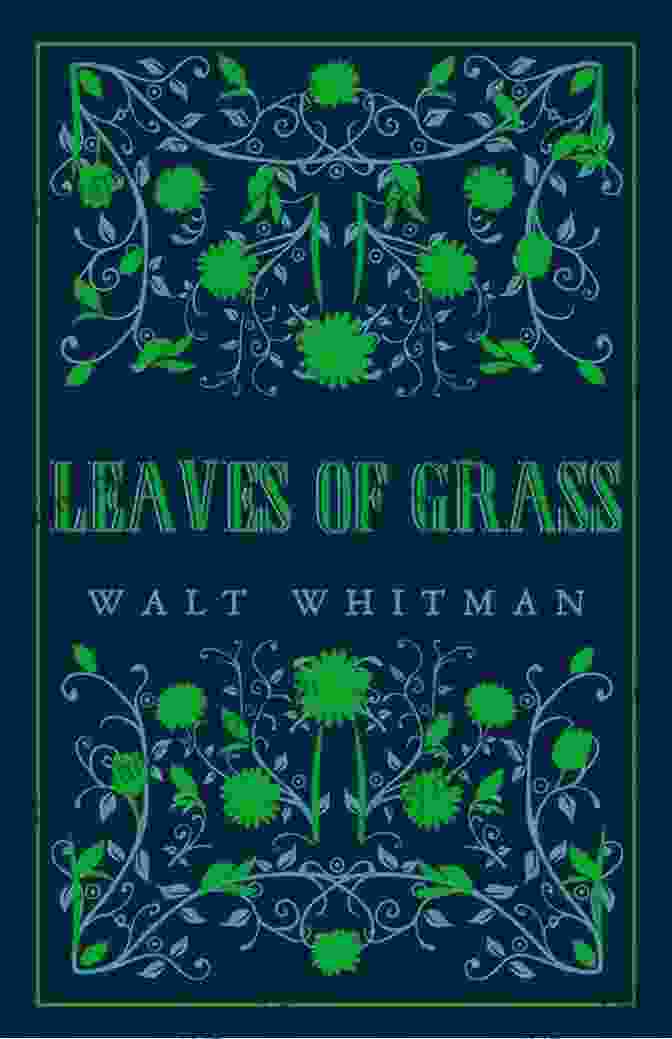
Today, the original 1855 edition of Leaves of Grass is housed in libraries and museums around the world. It serves as a testament to the visionary genius of Walt Whitman and the transformative power of literature. It is a reminder that even the most radical and unconventional ideas can have a profound impact on society, inspiring change and shaping the future.
Walt Whitman's Leaves of Grass, first published in 1855, is a literary masterpiece that continues to challenge, inspire, and provoke readers to this day. Its radical vision, its celebration of diversity, and its unwavering belief in the American spirit have made it an enduring symbol of American literature. The original 1855 edition remains a collector's treasure, a testament to the groundbreaking nature of Whitman's work. As we continue to grapple with the challenges and possibilities of our time, Leaves of Grass serves as a timeless reminder of the power of literature to spark change and illuminate the human condition.
4.7 out of 5
| Language | : | English |
| File size | : | 725 KB |
| Text-to-Speech | : | Enabled |
| Screen Reader | : | Supported |
| Enhanced typesetting | : | Enabled |
| Print length | : | 160 pages |
Do you want to contribute by writing guest posts on this blog?
Please contact us and send us a resume of previous articles that you have written.
 Top Book
Top Book Novel
Novel Fiction
Fiction Nonfiction
Nonfiction Literature
Literature Paperback
Paperback Hardcover
Hardcover E-book
E-book Audiobook
Audiobook Bestseller
Bestseller Classic
Classic Mystery
Mystery Thriller
Thriller Romance
Romance Fantasy
Fantasy Science Fiction
Science Fiction Biography
Biography Memoir
Memoir Autobiography
Autobiography Poetry
Poetry Drama
Drama Historical Fiction
Historical Fiction Self-help
Self-help Young Adult
Young Adult Childrens Books
Childrens Books Graphic Novel
Graphic Novel Anthology
Anthology Series
Series Encyclopedia
Encyclopedia Reference
Reference Guidebook
Guidebook Textbook
Textbook Workbook
Workbook Journal
Journal Diary
Diary Manuscript
Manuscript Folio
Folio Pulp Fiction
Pulp Fiction Short Stories
Short Stories Fairy Tales
Fairy Tales Fables
Fables Mythology
Mythology Philosophy
Philosophy Religion
Religion Spirituality
Spirituality Essays
Essays Critique
Critique Commentary
Commentary Glossary
Glossary Bibliography
Bibliography Index
Index Table of Contents
Table of Contents Preface
Preface Introduction
Introduction Foreword
Foreword Afterword
Afterword Appendices
Appendices Annotations
Annotations Footnotes
Footnotes Epilogue
Epilogue Prologue
Prologue Linda Scott
Linda Scott Empress Simone
Empress Simone Portia Macintosh
Portia Macintosh Alberto Ferreira
Alberto Ferreira Magnolia Valette
Magnolia Valette Amelia Wilde
Amelia Wilde Rick E Cutts
Rick E Cutts Vitalis Abeng
Vitalis Abeng Monty Schwarzenberg
Monty Schwarzenberg Daphne Lorbeeren
Daphne Lorbeeren Sandra N Kaplan
Sandra N Kaplan Jake Cohen
Jake Cohen Ralph Compton
Ralph Compton Tyson Yunkaporta
Tyson Yunkaporta Jl Huffman
Jl Huffman T M Bilderback
T M Bilderback Vikram Roy
Vikram Roy R W W Greene
R W W Greene Obi Ogbanufe
Obi Ogbanufe Andrew Alexander
Andrew Alexander
Light bulbAdvertise smarter! Our strategic ad space ensures maximum exposure. Reserve your spot today!

 Isaac MitchellThe Bread Machine Cookbook for Beginners: A Comprehensive Guide to Baking...
Isaac MitchellThe Bread Machine Cookbook for Beginners: A Comprehensive Guide to Baking...
 Octavio PazEuropean Variations as Key to Cooperation Research for Policy: Exploring the...
Octavio PazEuropean Variations as Key to Cooperation Research for Policy: Exploring the... Cruz SimmonsFollow ·7.3k
Cruz SimmonsFollow ·7.3k Gordon CoxFollow ·9.3k
Gordon CoxFollow ·9.3k Ivan CoxFollow ·15.1k
Ivan CoxFollow ·15.1k Colton CarterFollow ·8.9k
Colton CarterFollow ·8.9k Fred FosterFollow ·13.8k
Fred FosterFollow ·13.8k Samuel BeckettFollow ·16.9k
Samuel BeckettFollow ·16.9k Hank MitchellFollow ·8.7k
Hank MitchellFollow ·8.7k Martin CoxFollow ·11.8k
Martin CoxFollow ·11.8k

 Jorge Luis Borges
Jorge Luis BorgesThe Truth About the 15 Qualities That Men Secretly Admire...
Every woman wants to be loved and...

 Francisco Cox
Francisco CoxPlague Ship: Unraveling the Mystery of the Oregon Files
The Oregon Files, a collection of classified...
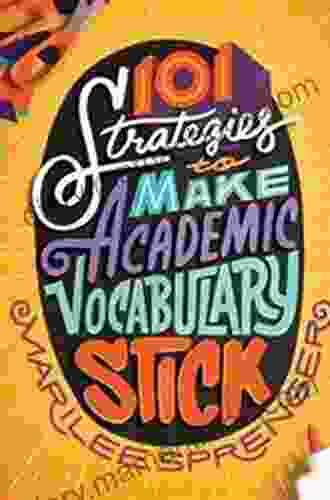
 Rudyard Kipling
Rudyard Kipling101 Strategies to Make Academic Vocabulary Stick: A...
Academic vocabulary is an...

 Fletcher Mitchell
Fletcher MitchellPractitioner Guide for Cities, Regions, and Countries:...
The world is...

 Emilio Cox
Emilio CoxOptimization and Security Challenges in Smart Power Grids
Smart power grids (SPGs) are emerging as a...

 Chandler Ward
Chandler WardMiles Davis and the Civil Rights Movement in America: A...
Miles Davis, the iconic jazz...
4.7 out of 5
| Language | : | English |
| File size | : | 725 KB |
| Text-to-Speech | : | Enabled |
| Screen Reader | : | Supported |
| Enhanced typesetting | : | Enabled |
| Print length | : | 160 pages |


